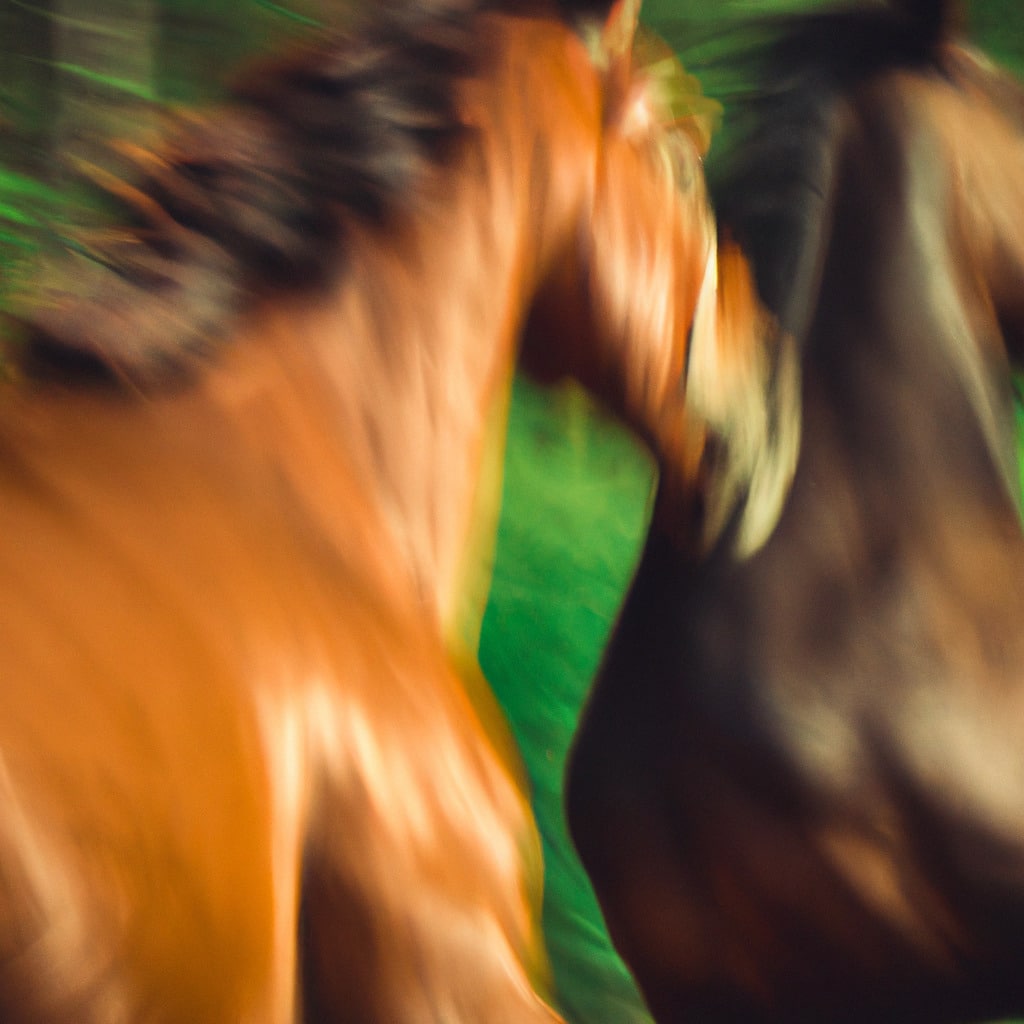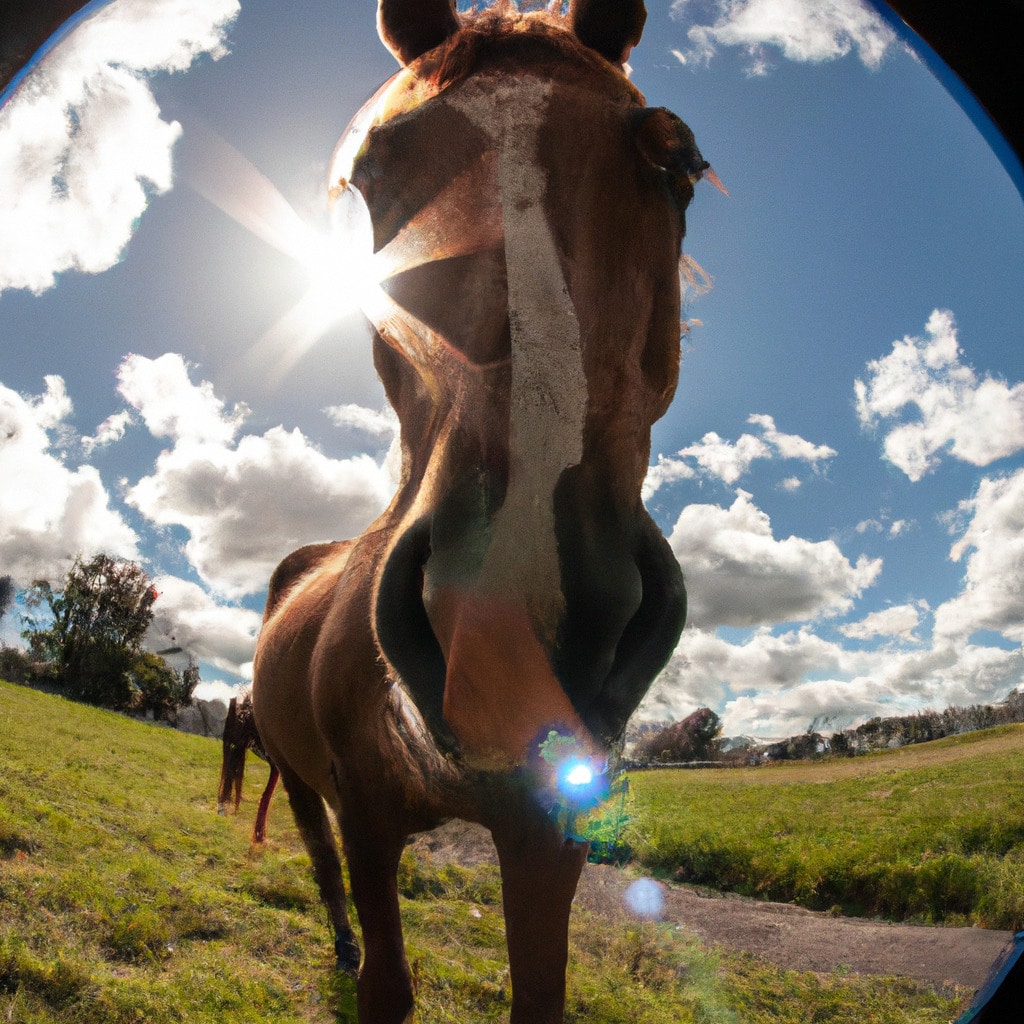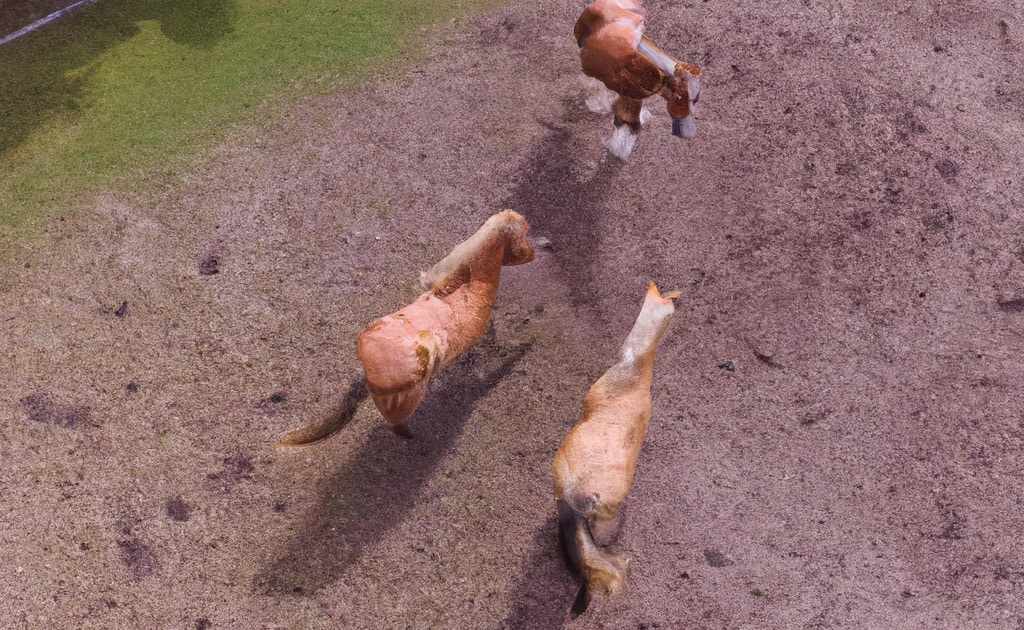The Fascinating World of Horse Genetics
Exploring the Secrets Hidden in Horse DNA
Unveiling the Truth: Horse DNA Testing Revealed
Delving into the Genetic Code of Horses
Unlocking the Mysteries of Horse DNA
The Importance of Horse DNA Testing
Horse DNA testing has become an indispensable tool in the world of horse genetics. By analyzing the genetic material of horses, scientists and breeders can gain valuable insights into various aspects of these magnificent creatures. From determining parentage and identifying genetic diseases to improving breeding programs and preserving rare bloodlines, horse DNA testing plays a crucial role in advancing our understanding of equine genetics.
One of the primary applications of horse DNA testing is establishing accurate parentage. In the past, determining the true parentage of a horse was often challenging, especially in cases where multiple stallions had access to a mare during the breeding process. However, with the advent of DNA testing, breeders can now confirm the parentage of a horse with certainty. This information is not only important for pedigree records but also for assessing the genetic potential and health risks associated with a particular horse.
Another significant aspect of horse DNA testing is the identification of genetic diseases and traits. Just like humans, horses can carry genetic mutations that predispose them to certain health conditions. By conducting DNA tests, veterinarians and breeders can identify these genetic markers and take appropriate measures to prevent the transmission of such diseases to future generations. This helps in minimizing the occurrence of inherited disorders and maintaining the overall health and well-being of the horse population.
Furthermore, horse DNA testing aids in the improvement of breeding programs. Breeders can use genetic information to make informed decisions about which horses to pair for breeding, thus maximizing the chances of producing offspring with desirable traits. By selecting horses with superior genetic profiles, breeders can enhance the overall quality of the breed, whether it’s for performance, conformation, or specific traits such as speed, endurance, or color patterns.
Preserving rare bloodlines is yet another area where horse DNA testing proves invaluable. Many horse breeds have faced the threat of extinction due to a limited number of individuals carrying unique genetic traits. By identifying and preserving these rare bloodlines through DNA testing, breeders can safeguard the genetic diversity within a breed. This not only ensures the survival of these distinctive traits but also contributes to the long-term sustainability of the breed as a whole.

The Process of Horse DNA Testing
Horse DNA testing involves a series of steps that allow scientists to analyze the genetic material of a horse and extract valuable information. The process begins with the collection of a DNA sample, which can be obtained from various sources such as blood, hair, or tissue. Once the sample is collected, it is sent to a specialized laboratory equipped with the necessary equipment and expertise to perform the DNA analysis.
In the laboratory, the DNA is extracted from the sample and purified to remove any impurities or contaminants. This ensures that the subsequent analysis is accurate and reliable. The purified DNA is then subjected to a process called polymerase chain reaction (PCR), which amplifies specific regions of the DNA. This amplification allows for the detection of genetic markers and variations that are relevant to the specific purpose of the DNA test.
After the PCR step, the amplified DNA is analyzed using various techniques such as gel electrophoresis or DNA sequencing. These techniques help in identifying specific genetic markers or mutations that are of interest. For example, when testing for parentage, scientists compare the DNA profiles of the foal, mare, and potential sire to determine if there is a match. Similarly, when screening for genetic diseases, specific mutations associated with the disease are targeted and analyzed.
Once the analysis is complete, the results are interpreted and reported to the owner or breeder. The report includes information about the genetic markers or mutations detected, as well as their implications. For parentage testing, the report confirms or excludes the potential sire as the biological father of the foal. In the case of genetic disease screening, the report indicates whether the horse carries any mutations associated with the disease and provides recommendations for management or breeding decisions.
It is important to note that horse DNA testing should always be conducted by reputable laboratories that follow strict quality control measures. This ensures the accuracy and reliability of the results. Additionally, it is crucial to consider the limitations of DNA testing. While DNA testing can provide valuable information, it does not guarantee the performance or health of a horse. Other factors such as environment, training, and nutrition also play significant roles in determining the overall traits and capabilities of a horse.
The Future of Horse DNA Testing
As technology continues to advance, the field of horse DNA testing is poised for exciting developments and innovations. Researchers are constantly exploring new genetic markers and techniques that can provide even more detailed information about horses’ genetic makeup. This opens up possibilities for further advancements in breeding programs, disease prevention, and overall horse welfare.
One area of interest is the study of performance-related genes in horses. Scientists are investigating the genetic factors that contribute to traits such as speed, endurance, and agility. By identifying these performance-related genes, breeders can make more informed decisions when selecting horses for specific disciplines or sports. This can lead to the development of specialized breeding programs aimed at producing horses with exceptional athletic abilities.
Another promising avenue is the use of genomic selection in horse breeding. Genomic selection involves analyzing the entire genome of an individual to predict its genetic potential. By examining thousands of genetic markers across the genome, scientists can estimate the breeding value of a horse for various traits. This approach allows for more accurate and efficient selection of breeding stock, leading to faster genetic progress and improved overall quality of the breed.
Furthermore, advancements in DNA sequencing technologies are making it possible to sequence the entire genome of a horse at a more affordable cost. Whole-genome sequencing provides a comprehensive view of an individual’s genetic makeup, allowing for the identification of rare genetic variants and a deeper understanding of the genetic basis of various traits and diseases. This wealth of information can revolutionize horse breeding and management practices, leading to more targeted and effective strategies for breed improvement and health management.
In addition to genetic advancements, the integration of horse DNA testing with other technologies such as artificial intelligence and big data analytics holds great potential. By combining genetic data with information on performance, health records, and environmental factors, researchers can gain valuable insights into the complex interactions between genes and the environment. This holistic approach can help in predicting and managing various aspects of horse health, performance, and well-being.
In conclusion, horse DNA testing has revolutionized the field of horse genetics and has become an essential tool for breeders, veterinarians, and researchers. The ability to accurately determine parentage, identify genetic diseases, improve breeding programs, and preserve rare bloodlines has greatly contributed to the advancement and sustainability of horse breeds.
As technology continues to advance, the future of horse DNA testing looks promising. The study of performance-related genes, the use of genomic selection, and the integration of DNA testing with other technologies are just a few examples of the exciting developments on the horizon. These advancements have the potential to further enhance breeding programs, improve horse health and welfare, and ultimately benefit the entire horse industry.
However, it is important to recognize the limitations of horse DNA testing. While it provides valuable information about the genetic makeup of a horse, it does not guarantee its performance, health, or overall quality. Other factors such as environment, training, and nutrition also play significant roles in shaping a horse’s traits and capabilities.
In the coming years, it will be crucial to continue conducting research and refining the techniques used in horse DNA testing. This will ensure the accuracy, reliability, and ethical use of genetic information in the horse industry. Additionally, education and awareness about the benefits and limitations of DNA testing should be promoted among horse owners, breeders, and enthusiasts.
As we unravel the mysteries of horse DNA through testing, we gain a deeper understanding of these magnificent creatures and their genetic potential. With each discovery, we move closer to unlocking the secrets hidden within their DNA and harnessing this knowledge for the betterment of horse breeds worldwide.
What new breakthroughs will horse DNA testing unveil in the future?


